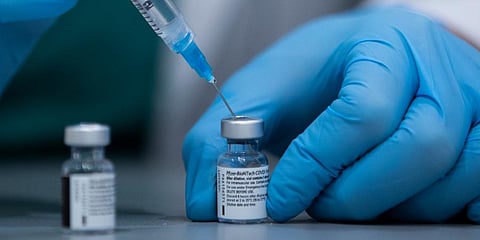

KOCHI: Kerala, which has close to 70,000 active Covid-19 cases and above-10% test positivity rate, is relying a lot on the ongoing vaccination to bring the situation under control.
Though no major issue has been reported with the inoculation, experts say a few things have to be kept in mind before and after taking vaccination.
They say smoking, alcohol consumption, acute psychological stress, lack of sleep and exercise can weaken the immune system and make the vaccination process futile.
“Smoking leads to lower antibody responses. Further, waning of antibodies has been observed to be quicker in smokers than in non-smokers after vaccination. Sleep deprivation and psychological stress can also lower antibody production. Therefore, sufficient sleep for two nights prior to getting the shot, will be useful,” said Dr Mathew Philip, a Pathanamthitta-based physician.
Studies published on vaccinations state sound sleep, exercise and keeping smoking and alcohol at bay can increase the effectiveness of the jab.
“Research has shown that antibody responses to tetanus shots were better in runners vaccinated after they completed a marathon than in a non-runner group. In elderly people, positive mood on the day of vaccination is associated with higher response to vaccines,” stated a study on ‘Factors that influence the immune response to vaccination’ published in the Journal of American Society for Microbiology.
Experts say two to main factors to be considered. One is whether the vaccination can protect one completely from the virus and the other that the term of the antibody generated in the person may vary depending on the individual’s immune system.
“There can be variations in the antibody response among different people. For a healthy person, we expect an adequate level of antibodies persisting anywhere between four months to one year. In others, the amount of antibodies or the duration they last might be inadequate,” said infectious disease expert Dr Anup R Warrier.